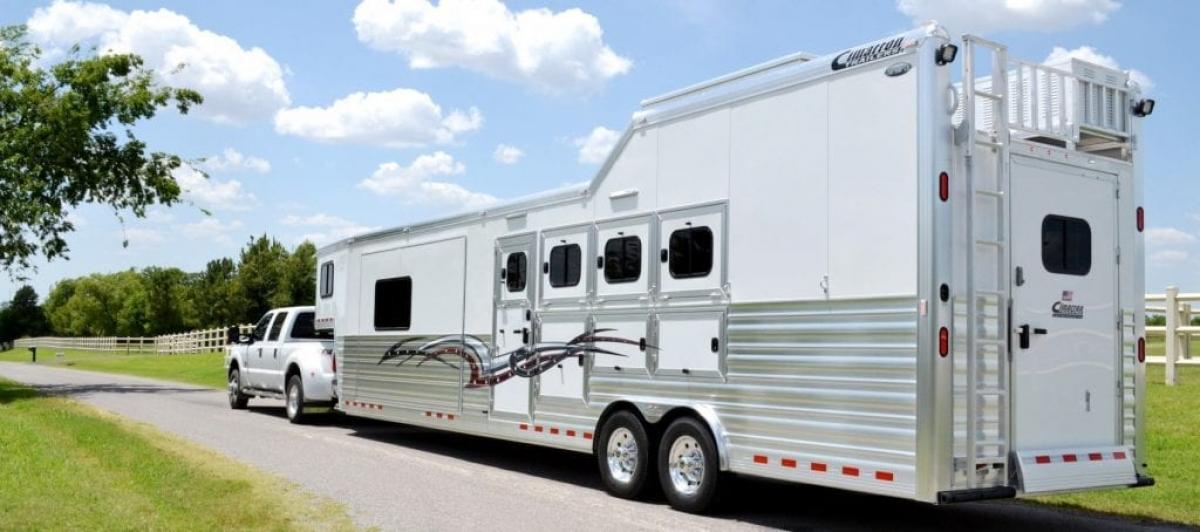Two insurance companies unsuccessfully sued a trainer after six horses in his care were killed in a trailer accident. The horses had been insured against mortality, and the insurance companies had paid the owners for the loss of their horses. The insurance companies, Diamond State Insurance Company and Great American Insurance Company, then brought suit against the trainer to recover the amounts paid to the owners. The trainer prevailed on the basis of a release of liability contained within his boarding agreement and signed by the owners.
According to the court, the six horses were boarded with the trainer, who not only provided services to his clients “at home,” but also at competitions around the country. The trainer would regularly transport the horses to competitions where he would care for them and train both them and their owners. He would then transport the horses home again in his own trailer. After attending a horse show in California, he loaded the horses onto his trailer to head back to his home base in Oregon. While driving, a car pulled alongside the trainer’s truck and signaled to the trainer that there was something wrong with the trailer. The trainer slowed down, and he observed “intermittent sparks, but no flames, emanating from the right rear side of the trailer close to the asphalt. Despite seeing the sparks coming from the trailer, knowing that something was wrong” the trainer did not stop but continued driving because, according to his deposition testimony, he “was unsure what the problem was and had many concerns about stopping on the [highway’s] narrow shoulder in the dark. However, at some point, [the trainer] pulled over to the side of [the highway] and looked into the horse trailer, at which time he saw ‘a lot of smoke coming out from the inside of the trailer.’ [The trainer] began to panic, closed the door, and began to drive north to get to a truck stop. As [he] drove, sparks continued to spray from the trailer, and at some point a fire started in the trailer.” Despite seeing flames coming from the back of the trailer, the trainer continued to drive. By the time he arrived at the truck stop, the trailer was engulfed in flames. All six horses in the trailer died from smoke inhalation.
The horses owners submitted claims to their insurance companies, and the two insurance companies paid a cumulative total of $226,000 to the owners. The insurance companies then filed suit against the trainer to attempt to recover the amounts paid to the owners.
In his defense, the trainer relied upon a provision in his boarding contract whereby each owner had agreed to release the trainer “from any and all claims” that might arise out of his negligence, and to “waive lawsuits” for “harm or injury” to their horse. The court ruled that since this was what is known as a “subrogation case”, where the insurance companies “stand in the shoes” of their insureds, the insurance company was bound by the release and waiver agreed to by the horse owners. In other words, if the owner could not sue the trainer for the death of the horse, then the insurance company could not sue the trainer either.
After the court dismissed the insurance companies’ lawsuit against the trainer, the trainer asked the court to order the insurance companies to pay him his attorneys’ fees. The trainer argued that if the insurance companies had bothered to consult with the horse owners before filing suit, they would have discovered the release and waiver provisions in the boarding agreement. The court found the insurance companies’ lack of diligence in its pre-filing investigation to be “particularly troubling.” While the court declined to award the trainer all his costs associated with defending the case, the court did order the insurance companies to pay the trainer $18,752.34 in expenses and attorneys’ fees incurred in connection with establishing that the horses died while he was providing services pursuant to a boarding agreement that precluded the owners from suing him if their horses died for any reason.
The moral of this story for trainers is that if your clients insure their horses for mortality, and the horse dies, there is the possibility that the insurance company will pay the claim and then come after you for reimbursement. To avoid being the de facto insurer of clients’ horses, trainers should:
(1) Have a written boarding contract, and
(2) Make sure that it includes not only a release of liability for injury to the horse, but
(3) A “hold harmless” and “indemnification” clause that will protect the trainer from any subrogation lawsuit brought by the insurer of the horse.








